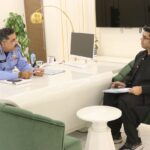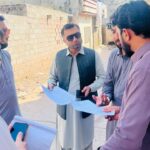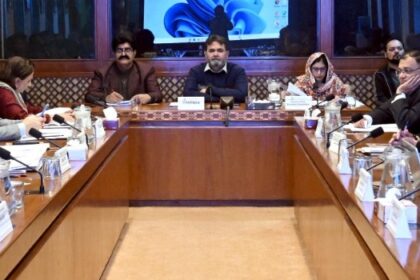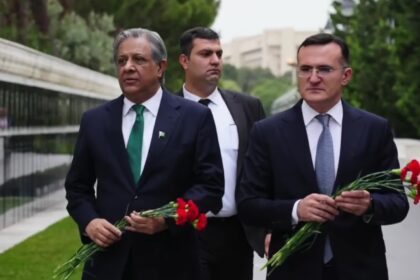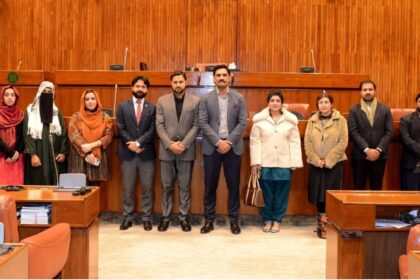The Institute of Strategic Studies Islamabad’s Arms Control and Disarmament Centre held a Defence Day ceremony focused on “Marka-e-Haq and the Future of Warfare in South Asia,” bringing together researchers, interns and students to reflect on recent cross-border clashes, Pakistan’s deterrence posture and the technological trends likely to shape future conflicts. Speakers paid tribute to the armed forces and martyrs, argued for strengthened multi-dimensional defence capabilities, and highlighted the need to modernize military systems while preparing for integrated, multi-domain operations.
The event was attended by ISSI research faculty, interns and students. It was organized by the Arms Control and Disarmament Centre and framed around the twin themes of national resolve embodied in Marka-e-Haq and the evolving character of warfare in the region.
Ambassador Sohail Mahmood, Director General of ISSI, paid tribute to the armed forces and those who lost their lives defending the country. He recalled historical tensions with India and said past Indian actions, including the 1971 dismemberment and later nuclear developments, shaped Pakistan’s strategic choices and prompted its own nuclear deterrent. He argued that Pakistan’s nuclear capability removed an existential threat and that recent military responses to aggression demonstrated national resolve and professional capability, enhancing Pakistan’s international standing. He also said Pakistan seeks constructive engagement, but will respond firmly if its sovereignty or territorial integrity is threatened. He emphasized that national defence is multi-dimensional, encompassing unity, economic strength, social cohesion and robust military capabilities.
Malik Qasim Mustafa, Director of the ACDC, warned that despite a ceasefire after the recent clashes, Indian actions and doctrinal shifts risk undermining regional peace and deterrence stability. He said India appeared to be moving toward doctrines that blend nuclear and conventional warfighting, which could increase risks of escalation. Mustafa stressed that Pakistan must modernize its military capabilities, including delivery systems, to deter future attacks, aggression or unintended escalation.
Research assistants Aleena Afzal and Hadia Akhtar presented on Marka-e-Haq and the future of warfare, linking recent incidents such as the Pahalgam episode and Pakistan’s response to it with broader changes in conflict dynamics. They argued that integrated multi-domain operations will shape future warfare in South Asia and identified emerging and disruptive technologies—artificial intelligence, drones, hypersonic weapons, cybersecurity and network-centric systems—as central to that evolution. Their presentation underscored that honoring past sacrifices requires preparing for new technological and operational challenges.
In an interactive session, participants said this year’s Defence Day carried renewed significance for younger generations, who often associated the day only with older conflicts. The recent clashes, they said, have reinforced the relevance of Defence Day and highlighted the role of Pakistan’s nuclear status in the region’s strategic balance. Speakers also stressed that while advanced weapons matter, strategy and national resolve ultimately determine outcomes.





